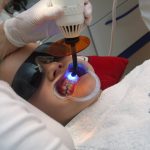5 Soothing Drinks to Sip After Wisdom Teeth Removal
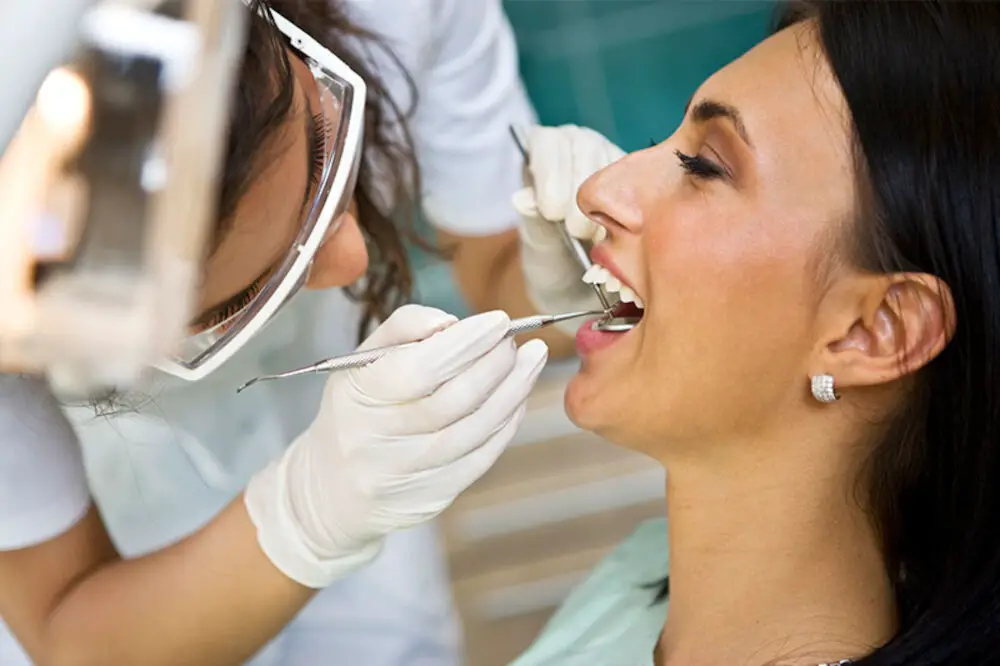
Undergoing wisdom teeth removal surgery can be an uncomfortable and painful experience. It is important to take good care of yourself during the recovery period to ensure a smooth and speedy healing process. One of the best ways to alleviate discomfort and soothe the affected area is by drinking soothing beverages. However, it is important to avoid hot, spicy, or acidic drinks that can irritate the surgical site. In this article, we will explore 5 soothing drinks that can help you feel comfortable and speed up your recovery after wisdom teeth removal. From refreshing fruit smoothies to herbal teas, there are many tasty and soothing drinks that can help you feel better after wisdom teeth removal. These drinks can help reduce swelling, inflammation, and pain, while also providing your body with the nutrients it needs to heal. Whether you prefer cold or warm drinks, you can find a variety of options that will help you feel better and keep you hydrated during this recovery period. So, let’s dive in and explore 5 of the best soothing drinks to sip after wisdom teeth removal.
Wisdom teeth removal is a surgical procedure to remove one or more of the four permanent adult teeth located at the back corners of the mouth, known as wisdom teeth. This is a common dental procedure, often recommended when the teeth are impacted, partially erupted, causing pain or infection. After the surgery, it is essential to take care of the area by avoiding solid foods, smoking, or drinking from a straw. Instead, it is recommended to consume cold and soothing drinks that can help reduce swelling, inflammation and provide pain relief. These drinks can include smoothies, milkshakes, cold tea, or water. Consuming soothing drinks after wisdom teeth removal can help you stay hydrated, promote healing, and speed up the recovery process.
Water
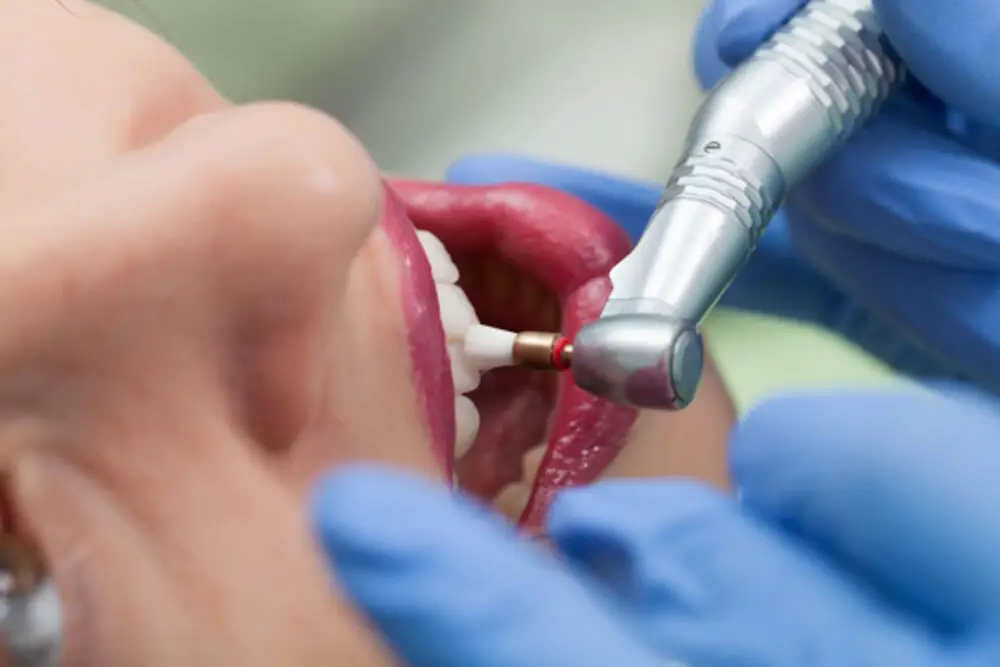
Water is one of the most essential drinks that one can consume after wisdom teeth removal. Drinking water helps in keeping the mouth hydrated, which is essential for the healing process. It is recommended to drink plenty of water after wisdom teeth extraction, as it reduces the risk of getting dry sockets. Dry sockets is a condition that occurs when the blood clot that is supposed to form after the tooth extraction is dislodged, exposing the underlying bone and nerves. This condition can be very painful and can delay the healing process. Therefore, drinking water can prevent dry sockets and help in the formation of a blood clot, thus promoting faster healing. Moreover, water also helps in reducing swelling and inflammation after wisdom teeth removal. Swelling and inflammation are common side effects of tooth extraction, and drinking water can help in flushing out the toxins from the body and reducing swelling. It also helps in removing the food particles that might get stuck in the extraction site, reducing the risk of infection. Therefore, drinking water is an essential part of the post-operative care after wisdom teeth removal, and one should try to drink as much water as possible to promote faster healing and reduce the risk of complications.
Hydration is crucial after wisdom teeth removal as it helps in reducing swelling and promoting healing. Drinking plenty of fluids, such as water, coconut water, or herbal tea, can also prevent dry socket, a painful condition that occurs when the blood clot in the socket is dislodged or dissolved. Additionally, staying hydrated can aid in flushing out harmful bacteria and debris from the mouth, reducing the risk of infection. It is important to avoid drinking through a straw, as the suction can dislodge the blood clot and delay the healing process. Overall, staying hydrated is a simple yet effective way to ensure a smooth and comfortable recovery after wisdom teeth removal.
Drinking water is a crucial part of our daily routine, and it becomes even more important after wisdom teeth removal. Not only does water help to keep the mouth clean and free from bacteria, but it also aids in the healing process. Drinking plenty of water helps to prevent dehydration, which can cause headaches, fatigue, and slow down the healing process. Additionally, water can help to reduce inflammation and pain in the affected area, making it easier to eat and speak comfortably. Drinking water also promotes the production of saliva, which can help to flush out food particles and prevent infection. Overall, staying hydrated by drinking plenty of water is essential for a quick and comfortable recovery after wisdom teeth removal.
Drinking water after surgery can be a challenging task, especially after wisdom teeth removal. However, there are a few tips that can make the process more comfortable. Firstly, use a straw as it helps to avoid any contact with the affected area. Secondly, try to drink water at room temperature or slightly warmer, as cold water can cause discomfort and increase swelling. Thirdly, take small sips instead of gulping down large amounts, as it can cause pain and discomfort. Lastly, avoid using any carbonated or caffeinated drinks, as they can cause dehydration and slow down the healing process. By following these simple tips, drinking water after surgery can be a more comfortable and soothing experience.
Tea

Tea is an excellent drink to have after wisdom teeth removal. It is a soothing drink that can help alleviate pain and inflammation. The warmth of the tea can also help relax the muscles in your jaw, making it easier to eat and drink. Chamomile tea, in particular, has anti-inflammatory properties that can help reduce swelling and pain. It is also known for its calming effects, making it a great drink to have before bed. Additionally, green tea contains antioxidants that can help promote healing and reduce the risk of infection. Overall, tea is an excellent choice for those who have undergone wisdom teeth removal and are looking for a comforting and healing drink. There are many different types of tea to choose from, each with its own unique benefits. Black tea, for example, contains caffeine which can help to reduce fatigue and increase alertness. Herbal teas, on the other hand, are caffeine-free and can help to promote relaxation and improve sleep quality. Some great herbal tea options include peppermint, ginger, and lavender. These teas not only taste great but also have anti-inflammatory and pain-relieving properties that can help to ease discomfort after wisdom teeth removal. Whether you prefer hot or iced tea, there is a wide variety of options to choose from that can help to promote healing and soothe discomfort.
Tea has been known to have soothing effects on postoperative pain and swelling, making it a great drink to sip after wisdom teeth removal. The anti-inflammatory properties of tea, particularly green tea and chamomile tea, can help reduce swelling and promote healing. In addition, the warmth of the tea can help alleviate discomfort and provide a sense of relaxation. Adding honey to tea can also provide a natural source of pain relief and help soothe the throat. It is important to avoid hot tea immediately after surgery, as it can increase bleeding, but once the initial healing period has passed, tea can be a comforting and beneficial beverage for recovery.
After undergoing surgery, it is crucial to consume only those types of tea that are safe for your health. The best types of tea that you can drink after surgery are herbal teas such as chamomile, ginger, and peppermint tea. Chamomile tea is known to have anti-inflammatory properties that soothe the pain and discomfort caused by surgery. Ginger tea helps in reducing inflammation, nausea and is also an excellent pain reliever. Peppermint tea is effective in reducing oral discomfort and also helps in relieving nausea. These types of tea are not only safe but also effective in promoting healing and reducing inflammation, making them the perfect choice for anyone recovering from surgery.
To prepare tea for maximum benefits, it is important to use high-quality loose tea leaves or tea bags that are free of additives or artificial flavors. Boil fresh water and let it cool for a minute or two before pouring it over the tea leaves or bag. Steep the tea for 3-5 minutes, depending on the type of tea, and avoid over-brewing, as this can result in a bitter taste and reduce the tea’s beneficial properties. Adding a squeeze of lemon juice or a dash of honey can enhance the flavor and provide additional health benefits. However, avoid adding milk or cream, as these can counteract the tea’s health benefits and irritate sensitive teeth and gums after wisdom teeth removal.
Smoothies

Smoothies are a popular drink that is perfect for sipping after wisdom teeth removal. They are soothing and easy to consume, making them an ideal choice for those who are experiencing pain and swelling after the procedure. Smoothies can also be a great way to get the nutrients your body needs to heal properly. With a variety of flavors and ingredients, you can customize your smoothie to suit your taste and dietary preferences. Whether you prefer a fruity or creamy smoothie, there are plenty of options to choose from. One of the benefits of smoothies is that they are easy to make at home. All you need is a blender and some ingredients, and you can whip up a delicious and healthy drink in no time. You can use fresh or frozen fruits, yogurt, milk, and other ingredients to create a smoothie that is both delicious and nutritious. Some popular smoothie flavors include strawberry banana, blueberry, and mango. You can also add protein powder or other supplements to make your smoothie even more beneficial for your body. Overall, smoothies are a great choice for anyone looking for a refreshing and healing drink after wisdom teeth removal.
Smoothies can be a great choice for those looking to heal after surgery, such as after wisdom teeth removal. Not only are they easy to consume and gentle on the mouth, but they can also provide a plethora of nutritional benefits. Smoothies can be packed with vitamins and minerals, including vitamin C, which helps with wound healing, and calcium, which is important for bone health. Additionally, they can contain protein from ingredients such as Greek yogurt, which can aid in the repair and regeneration of tissues. Adding in fruits and vegetables, such as berries and spinach, can also provide antioxidants and anti-inflammatory properties that can help reduce swelling and promote healing. Overall, incorporating smoothies into a post-surgery diet can be a delicious and nutritious way to aid in the healing process.
Smoothies can be a great option for those looking for a refreshing and healthy drink after wisdom teeth removal. However, it’s important to choose the right ingredients to ensure that the smoothie is safe to consume. One type of smoothie that is safe to consume after wisdom teeth removal is a fruit smoothie. Fruits such as bananas, berries, and mangoes are soft and easy to blend, making them the perfect base for a smoothie. Additionally, adding in yogurt or milk can provide a source of protein and calcium, which can aid in the healing process. Another type of smoothie that is safe to consume is a vegetable smoothie. Vegetables such as spinach, kale, and cucumber can be blended into a smoothie to provide a nutrient-rich and refreshing drink. However, it’s important to avoid adding hard or crunchy fruits and vegetables, as they can irritate the surgical site.
After wisdom teeth removal surgery, it is essential to take care of your oral health and avoid any discomfort or pain. Drinking smoothies is a great way to consume nutrients, stay hydrated, and soothe your mouth. To make and drink smoothies comfortably, consider using soft fruits like bananas, mangoes or berries, adding protein powder or yogurt to increase protein, and using cold liquid to reduce swelling. Additionally, drinking the smoothie with a straw can prevent any suction, which can cause dry socket. Finally, it is essential to avoid using any ingredients that may irritate the mouth, such as citrus fruits or spicy foods. By following these tips, you can make and enjoy a delicious and soothing smoothie after your wisdom teeth removal surgery.
Broth
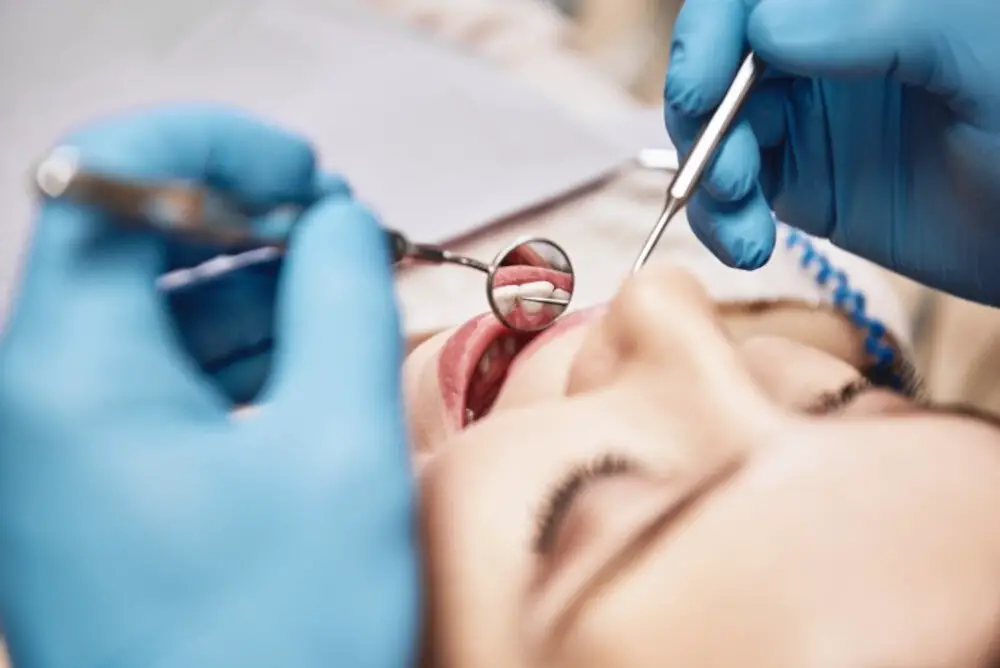
Broth is a comforting and nourishing drink that can help ease the pain and discomfort after wisdom teeth extraction. Made by simmering meat, vegetables, and herbs in water for several hours, broth is packed with vitamins, minerals, and amino acids that support healing and boost immunity. It’s also easy to digest, which makes it a perfect drink for those who have difficulty chewing solid foods. One of the main benefits of broth is its high collagen content. Collagen is a protein found in bones, skin, and connective tissue that plays a crucial role in tissue repair and regeneration. When you drink broth, you’re getting a concentrated dose of collagen, which can help speed up the healing process and reduce inflammation. Additionally, broth is rich in other nutrients like calcium, magnesium, and potassium, which are essential for maintaining strong bones and teeth. Whether you prefer chicken, beef, or vegetable broth, sipping on a warm cup of this comforting drink can help you feel better and recover faster after wisdom teeth removal.
Broth is a nourishing liquid that can provide numerous nutritional benefits for those who are healing after surgery. It is rich in protein, collagen, and essential vitamins and minerals, all of which are crucial for the body’s healing process. The protein in broth helps rebuild and repair tissues, while collagen supports the growth and repair of bones, tendons, and cartilage. Additionally, broth is easy to digest, making it an excellent option for those who may have difficulty eating solid foods after surgery. The minerals and vitamins in broth, such as calcium, magnesium, and vitamin C, can also help boost the immune system and aid in the healing process. Overall, incorporating broth into a post-surgery diet can provide a comforting and nutritious way to promote healing and recovery.
Broth is a nutritious and soothing drink that is recommended after wisdom teeth removal as it provides essential nutrients and helps to prevent dehydration. However, not all types of broth are safe to consume, especially if you are on a soft food diet. Clear broth is the safest option as it is free from solid particles and fat. Chicken, beef, and vegetable broths are all good choices, but it is important to avoid any broths that contain chewy or hard ingredients such as bones or vegetables with tough skins. Additionally, it is important to ensure that the broth is not too hot to avoid irritating the surgical site.
Broth is a great option for those recovering from surgery, as it is easy to digest and provides necessary nutrients. To prepare broth, it is important to use high-quality ingredients such as bones, vegetables, and herbs. It is also important to strain the broth to remove any impurities or bones that may cause discomfort. When consuming broth, it is best to start with small sips and gradually increase the amount as tolerated. It can be helpful to use a straw to avoid any irritation to the surgical site. Additionally, adding some salt or spices to the broth can help enhance the flavor and make it more enjoyable to consume. Finally, it is important to sip broth slowly and avoid drinking it too hot, as this can cause discomfort. By following these tips, broth can be a comforting and nourishing option for those recovering from surgery.
After undergoing wisdom teeth removal surgery, it is crucial to take care of yourself to prevent any complications that may hinder the healing process. One of the best ways to do this is by consuming soothing drinks that can help ease the discomfort and promote healing. These drinks should be soft, cold, and easy to drink to avoid any damage or irritation to the surgical site. Some of the most recommended soothing drinks include ice-cold water, herbal tea, fresh fruit smoothies, vegetable juices, and bone broth. Each of these options provides different benefits and can help you stay hydrated while reducing inflammation and pain. By sipping these drinks, you can ensure a speedy recovery and return to your normal diet as soon as possible.
After undergoing wisdom teeth removal surgery, it’s essential to consume foods and drinks that are gentle on your recovering mouth. In this article, we have compiled a list of five soothing drinks that will help you stay hydrated and comfortable during the healing process. First on the list is ginger tea, which is known for its anti-inflammatory properties and can also help soothe nausea. Second, we have green smoothies that are packed with nutrients and can help you stay full while also being easy to swallow. Third, bone broth is rich in collagen, which can aid in the healing of your gums and teeth. Fourth, chamomile tea is a calming drink that can help you relax and reduce inflammation. Lastly, cold-pressed juice is an excellent source of vitamins and minerals that can help boost your immune system and promote healing.
In conclusion, recovering from wisdom teeth removal can be a painful and uncomfortable process, but there are ways to make it more manageable. Incorporating soothing drinks into your diet can help alleviate some of the discomfort and promote faster healing. Remember to stay hydrated and avoid any foods or drinks that could hinder the healing process. Additionally, make sure to follow your dentist’s post-op instructions and take any prescribed medication as directed. With patience, self-care, and the help of these soothing drinks, you’ll be back to your normal routine in no time.
Conclusion
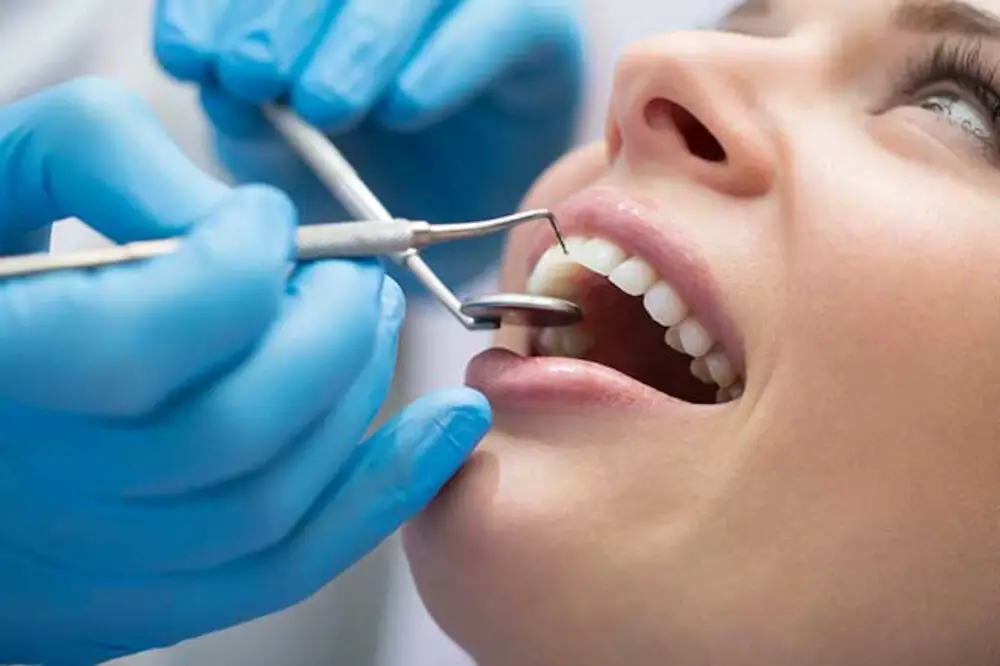
In conclusion, having wisdom teeth removed can be a painful and uncomfortable experience, but incorporating the right soothing drinks into your recovery can make a significant difference. From warm tea to cold smoothies, these five delicious and nutritious options can help alleviate pain, reduce inflammation and provide much-needed hydration during the healing process. So, whether you prefer a comforting cup of chamomile tea or a refreshing glass of cucumber and mint-infused water, be sure to include these soothing drinks in your post-surgery recovery plan for a speedy and successful healing journey.







